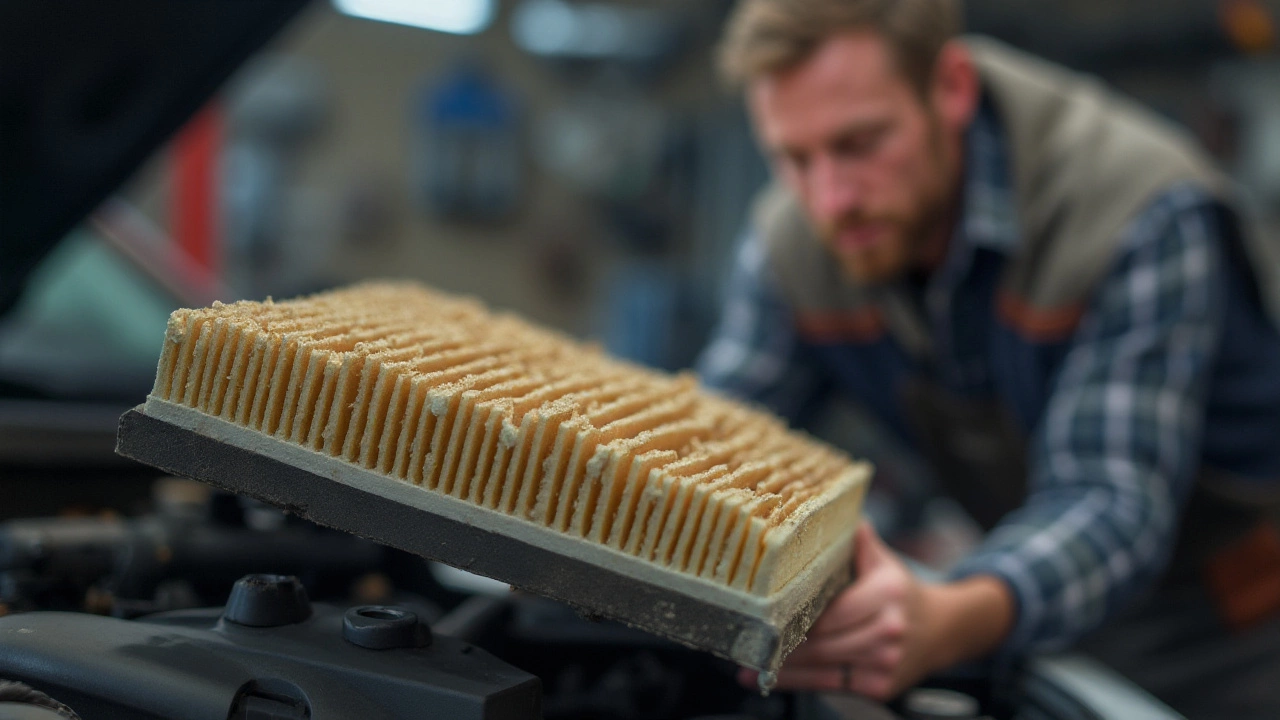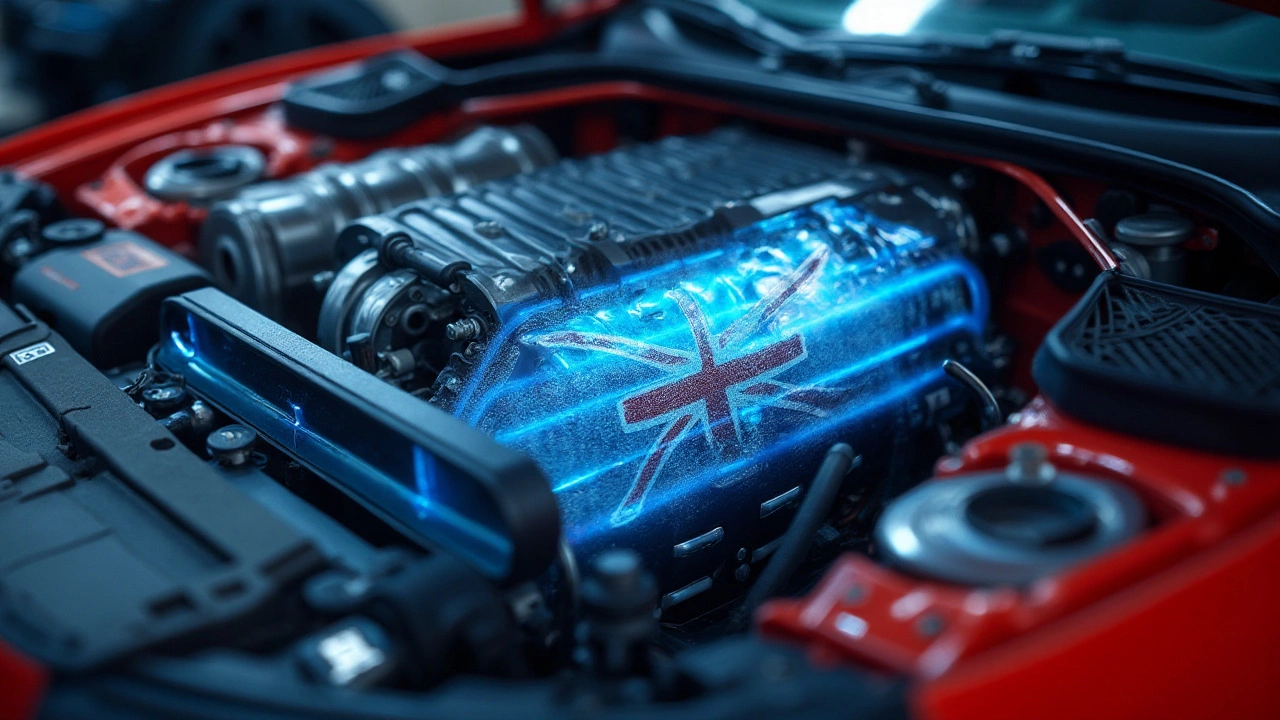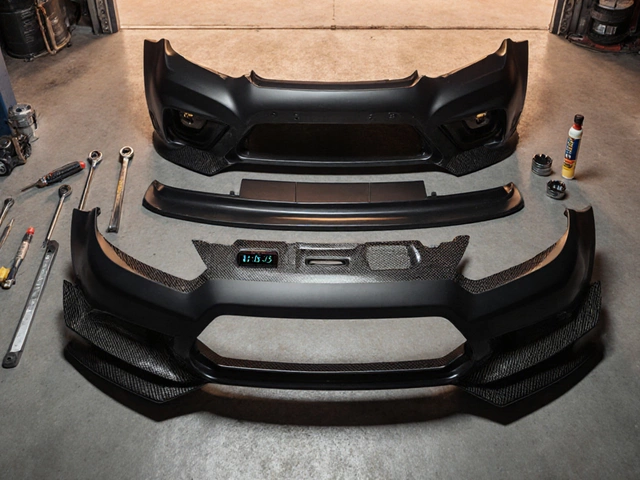When it comes to enhancing vehicle performance, many drivers turn to performance air filters, hoping for a boost in engine efficiency and power. The concept seems simple: better airflow means better engine performance. Yet, there's a lingering question in the minds of automotive enthusiasts and professionals alike — can these air filters be too restrictive?
Understanding the role of air filters is crucial. They act as the first line of defense for your engine, filtering out dust, debris, and other contaminants. While some argue that restrictive filters can hinder airflow, others believe they are essential for optimal engine protection. So, how do you strike the right balance?
In this article, we delve into the intricate workings of performance air filters, examining their benefits and potential drawbacks. We'll also guide you to identify symptoms of excessive restriction and offer practical advice on selecting the ideal filter for your vehicle's needs.
- Understanding Air Filters
- The Balance of Airflow and Filtration
- Potential Risks of Restrictive Filters
- Signs Your Air Filter is Too Restrictive
- Choosing the Right Air Filter
Understanding Air Filters
Air filters might seem like simple, mundane components of an engine, but their importance cannot be overstated. These unsung heroes have the critical job of ensuring that the air reaching your vehicle's engine is clean and free from harmful debris. Without them, your engine would be vulnerable to dust, dirt, and pollutants, which could lead to significant wear and reduced efficiency over time. Performance air filters, designed to enhance the engine's breathability, are particularly vital for those seeking to squeeze every ounce of horsepower from their vehicle. However, not all filters are created equal, and understanding their operation can help you make the best choice for your car or truck.
The fundamental function of any air filter is to provide a barrier to dirt and impurities while allowing clean air to pass through to the engine. Modern air filters use materials such as paper, foam, or cotton to trap these particles without obstructing airflow too much, as an engine needs a large volume of air to run efficiently. Engine efficiency is closely tied to how readily air can flow through these filters because air is a crucial component of the combustion process. High-performance engines, in particular, demand a substantial amount of air for optimal operation, which makes filter choice especially important for performance enthusiasts.
The balance between filtering capacity and airflow is an engineering challenge, and it is here that the notion of restrictive filters comes into play. If a filter is too restrictive, it can impede airflow, potentially reducing vehicle performance. On the other hand, a filter that allows too much air might also allow too many contaminants, threatening engine health. Thus, the mastery of air filter design rests in crafting filters that provide adequate filtration without severely affecting airflow. According to a study by the Society of Automotive Engineers, "a 25% reduction in air restrictiveness can result in a 10% increase in horsepower, demonstrating the delicate balance of air flow."
Performance air filters often come in two main types: high-flow cotton filters and foam filters. Cotton filters, like those from brands such as K&N, are often washable and reusable, boasting increased airflow capabilities while still managing to filter out harmful particles effectively. Foam filters, praised for their durability and efficiency in dusty environments, trap contaminants in multiple layers of oil-coated foam. Choosing between these types requires consideration of your driving environment and maintenance preferences. If you often drive in harsh, dirty conditions, a more substantial filter might be safer even if it is more restrictive. However, an engine primarily used for on-road performance might benefit from a less restrictive filter for better airflow.
Why is this so critical? Because the airflow entering the engine directly affects the air-fuel mixture, which determines engine performance. Too restrictive an air filter alters this mix, potentially leading to a less efficient burn. Additionally, excessive restriction can cause the engine to work harder to draw air, impacting both power output and fuel economy. This is why understanding the nuances of air filters is not just for the gearheads but for anyone interested in vehicle performance and longevity. By knowing how air filters function and the impact of their restrictiveness, you can make informed decisions that protect and enhance your vehicle's performance for miles to come.
The Balance of Airflow and Filtration
Ensuring the right balance between airflow and filtration in a vehicle's engine is as delicate as it is essential. Performance air filters are designed to enhance the engine's efficiency by managing this equilibrium. The central goal of any air filter is to maximize the flow of fresh air to the engine while simultaneously filtering out contaminants like dust, pollen, and debris. Achieving this balance can significantly influence the engine's health and, consequently, the vehicle's performance. A filter that restricts too much or allows too much can create a mismatch in the air-intake system, which might lead to less than optimal engine performance.
Engineers focus on designing air filters that allow unrestricted airflow while maintaining sufficient filtration efficiency. It's a bit like walking a tightrope; too much restriction on the filter and you choke the engine, too little and you're essentially inviting contaminants to cause havoc inside. According to a study at the Society of Automotive Engineers (SAE), filters that provide enhanced airflow without sacrificing filtering capacity can contribute to a more efficient combustion process. This is crucial because an engine needs to breathe as comfortably as possible to perform at its peak.
It's important to know that not all performance air filters are made equal. Some use cotton gauze soaked in oil to trap dirt, while others might incorporate synthetic materials or foam. Each has its set of advantages and trade-offs. Cotton filters, for example, are known for allowing excellent airflow but require more upkeep. Foam filters might offer superior filtration but at the cost of reduced airflow. Thus, understanding the materials and design of these performance air filters can greatly aid users in making informed decisions.
For those interested in pushing their vehicle's performance boundaries, consideration must be given to how these filters are maintained. A clogged filter, even if it's a high-end product, negates its performance capabilities and might even pose limitations that affect the vehicle's power output. Keeping the filter clean and inspecting it regularly ensures the balance between airflow and filtration is maintained. Many enthusiasts even set a maintenance schedule to inspect and clean their filters every few months, depending on the driving conditions.
Consider this advice from the expert panel at Auto Mechanics Monthly:
“Finding the right air filter, one that breathes well but filters efficiently, is like finding the sweet spot of vehicle performance,” they say. “Skimping on quality will cost more in the long run, as a poorly balanced filter might cut power and efficiency, potentially leading to engine wear.”Such insights can help car owners appreciate the value of investing in quality air filters that strike the right connect between airflow and filtration.

Potential Risks of Restrictive Filters
Engines, like breathing creatures, require a steady influx of air to perform optimally. This air not only facilitates combustion but also ensures mechanical components remain cool under pressure. A performance air filter seeks to enhance this process; however, when designed or maintained poorly, it can turn into a double-edged sword. Many vehicular enthusiasts find themselves facing unexpected challenges when their filters become too restrictive. While it might seem contrary to the purpose, excessive restriction can actually starve the engine of the air it desperately needs, which inevitably impacts engine efficiency and power output.
Imagine an athlete trying to perform at their peak while breathing through a straw. Such a scenario leads to a drop in performance and even potential damage due to forced strain. Similarly, if a filter becomes clogged with debris or fails to allow adequate air passage due to its design, it essentially forces the engine to work harder. Overworked engines not only wear out more quickly but also have a detrimental effect on vehicle performance, often resulting in lower horsepower figures and a sluggish throttle response. This hard-earned experience teaches us that more isn’t always better, especially in the realm of filtration and airflow.
Beyond immediate performance concerns, excessively restrictive filters pose long-term risks to engine health. Heat accumulation is a significant side effect when airflow is choked, causing engine temperatures to rise and increasing the likelihood of overheating. This can lead to deterioration of engine components, gaskets, and other essential parts. It’s a cascading effect where one small problem amplifies, creating a chain reaction of costly repairs. Owners might find themselves frequently visiting workshops, never realizing that the root cause might be something as unassuming as their choice of air filter.
"An engine needs air, much like a runner needs oxygen. Deny it, and you run the risk of long-term detriment," notes auto expert and veteran mechanic James Thornton.
In addition to mechanical woes, restrictive air filters can also contribute to higher fuel consumption. Because the engine struggles to draw in air, it often compensates by burning more fuel in an attempt to meet the power demands placed on it. This not only affects your wallet but also your carbon footprint, an increasingly important consideration in today’s eco-conscious world. Motorists may unknowingly contribute to greater emissions, contradicting the performance goals they initially sought when choosing these filters.
Add to that the challenge of diagnosing such issues. Air filter restriction is not always immediately apparent and can be misattributed to other performance failures like faulty sensors or worn spark plugs. Technicians might spend valuable time investigating peripheral problems without realizing the culprit may be right under the hood. Armed with knowledge about these potential pitfalls, vehicle owners can approach performance enhancements with clarity, knowing that the perfect balance between filtration and airflow requires diligence, not just an aftermarket part.
Signs Your Air Filter is Too Restrictive
If your vehicle's performance suddenly seems to be underwhelming, it might be your air filter protesting. Recognizing when a performance air filter is too restrictive can prevent long-term damage to your engine. The first indication often comes from a noticeable drop in power. You might press the accelerator but feel a lack of response, a sure sign the engine isn't getting the air it needs to breathe easily. That sluggishness might also be accompanied by a stumble during acceleration, especially under hard throttle.
Another telling sign is a decrease in fuel efficiency. When your engine isn't receiving adequate airflow due to an overly restrictive filter, it struggles to maintain the right air-fuel mixture. This imbalance forces the engine to use more fuel, leading to more frequent stops at the pump. In a world where every drop counts, keeping an eye on fuel usage can be a quick health check on your filter's restriction level.
Listen closely to your car's heart – the engine. If you hear unusual noises such as coughing, sputtering, or a slight hiss when idling, it could be your vehicle’s way of complaining about a restrictive air filter. Think of it as the engine trying to speak through a stuffy nose, struggling for that vital airflow. Keeping the auditory characteristics of your vehicle top of mind can alert you to problems before they become significant.
"Air filters are crucial to engine health, but too much restriction can suffocate performance," notes auto expert Jamie Thompson from AutoPros Weekly.
For those who are more hands-on, a visual inspection is invaluable. Checking the filter for dirt and debris accumulation can provide immediate insight. Hold the filter up to a light source; a severely blocked filter will let little to no light pass through. Replacing or cleaning the filter might just be the simple fix your car needs.
Lastly, modern vehicles sometimes offer a helping hand via engine diagnostic tools. An unexpected check engine light could be the onboard computer indicating airflow issues. A diagnostic tool can help confirm if there's a correlation between the sensor readings and restricted airflow. Understanding and interpreting these signs can lead to timely corrective measures, ensuring your vehicle runs at its best.

Choosing the Right Air Filter
When it comes to selecting the perfect air filter for your vehicle, it's important to consider both the needs of your engine and your driving habits. Performance air filters are popular for their role in enhancing engine output by improving air intake. However, not all filters are created equal. Engine efficiency largely depends on achieving the right balance between air flow and filtration efficacy. A high-performance filter must effectively minimize dirt intake without overly restricting airflow. Begin by consulting your vehicle’s manual, which can provide valuable specifications. Understanding the manufacturer's recommendation offers a baseline, particularly in knowing crucial details such as filter size, type, and the preferred material.
There exists a variety of filter materials, each with specific strengths. Cotton gauze and synthetic material filters are often used in performance applications. They typically offer better airflow compared to traditional paper filters. However, it’s key to note that such performance air filters often require regular maintenance. A reusable cotton filter, for example, needs washing and oiling periodically to maintain optimal functionality. This means that while you can save cost in the long run by not repeatedly buying new filters, consistent upkeep becomes crucial to ensure ongoing performance.
“A well-chosen air filter can improve engine performance, but a poorly chosen one can do just the opposite,” says Chris Gerdes, a renowned automotive engineer. It's evident from these insights that selecting an air filter involves more than meeting immediate engine power needs; it's about long-term vehicular health.In addition, take into account your typical driving environment. Dusty roads and off-roading conditions require filters that can handle higher particulate levels. On the other hand, if your routine includes highway driving, a filter with higher air throughput may suit your needs better. Vehicle performance also ties to air temperature, as heat affects air density and thus engine output.
Another consideration is the impact of the air filter on your vehicle's emissions. Many modern vehicles come equipped with sensors that interact with the vehicle's computer system, adjusting the air-to-fuel mixture to maximize efficiency. An improperly paired filter could potentially trigger warning lights or, in severe cases, affect the car's emissions control systems. A high-quality performance air filter will integrate seamlessly with your existing system while offering improved filtration and engine efficiency.
To dive deeper into filter selection, you may want to incorporate insights from independent tests and reviews. Often, automotive magazines and websites publish filtration and flow benchmarks. Some enthusiasts might even turn to tuning shops that offer dynamometer testing to quantify performance gains. With a focus on both engine health and performance gains, filter brands like K&N, AEM, and Airaid are trusted by car enthusiasts. Each provides detailed guidelines on maximizing filter life and performance, underscoring the importance of following prescribed cleaning and maintenance schedules.
Ultimately, while the urge to opt for the highest-performing or most cost-effective filter may be strong, remember that the goal is to tailor your choice to suit personal needs and enhance your vehicle’s efficiency and operation. By making an informed decision and ensuring proper maintenance, you not only boost your engine’s performance but also potentially extend its lifespan. Choosing the right air filter is a decision that affects your car every time you press on the gas pedal, making it a critical part of your maintenance checklist.






